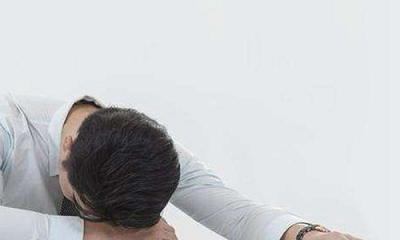An Investigation into Epididymitis: Assessing its Self-Limiting Nature
A self-limited disease is a disease with the characteristic of self-remission and can dissipate by itself. The improvement of self-limited condition is usually not dependent on the treatments taken but mainly on the features of the causes and the body's responses after developing the disease. In the absence of serious complications, no unique treatments are required. It usually requires symptomatic therapies only.

After the occurrence and development of self-limited diseases to a certain extent, they can stop automatically and recover gradually. In this process, patients can recover progressively from being healthy with their immunity. Self-limited diseases usually include viral infections, autoimmune diseases, and rotavirus enteritis. Certain non-infectious diseases may also have a self-limited course.
Is epididymitis a self-limited disease?
Epididymitis is related to various pathogenic microorganisms, such as chlamydia trachomatis, Neisseria gonorrhoeae, bacteria, etc., with pain and swelling in the testicles as the main characteristics.
Epididymitis is not a self-limited disease and can not be cured without treatments. It may lead to the proliferation of pathogenic microorganisms in the body without prompt treatments, aggravating the condition gradually, and developing into chronic orchitis, thus increasing the difficulty of subsequent therapies.
The treatments of epididymitis include the following:
1. Medication. Bacteria-sensitive drugs should be prescribed for patients with acute epididymitis. Such patients are usually given intravenous medicines lasting 1 to 2 weeks; Prevent the inflammation from turning chronic; oral antibiotics should be continued for 2 to 4 weeks.
Chronic epididymitis is mainly treated with oral antibiotics and can be treated with antibiotics when acute attacks occur. Medication is usually provided according to clinical experiences. After checking the results of the bacteria culture and medical sensitivity tests, more targeted antibiotic treatments will be provided, with a course of treatment lasting about two weeks.
If patients are combined with chronic prostatitis, the such disease should be treated simultaneously to prevent the recurrence of such conditions due to incomplete treatments for the sources of infections.
2. Surgery. When the therapeutic effects of antibiotics are not ideal or when epididymis ischemia is suspected, epididymotomy for decompression should be performed for acute epididymitis. It is necessary to prevent hurting epididymal tubes as much as possible during the operation. If the adjacent extra-spermatic fascia can be cut simultaneously, it will have a more profound effect of improving blood circulation in the testicles.
Suppose the inflammatory mass in the epididymis of the patient enlarges, and the sensation of fluctuation appears, indicating the formation of an abscess. In that case, it should be cut and drained in time. For chronic epididymitis, if the effect of other treatments is not significant for multiple recurrent epididymitides, especially when the antituberculosis therapy is ineffective, epididymidectomy can be considered for the epididymis.
3. TCM treatment and physiotherapy. In addition to the two methods above, epididymitis can also be treated with herbal medicine, such as Diuretic and Anti-inflammatory Pill. Diuretic and Anti-inflammatory Pill has a broad-spectrum antibacterial property, which can kill various bacteria in the male urogenital system, helping to treat epididymitis. At the same time, it can activate blood and qi to alleviate pain, reduce inflammation and detumescence, and relieve the discomfort caused by epididymitis.
At the same time, sitz baths with warm water also contribute to the recovery of epididymitis. Sitz baths with warm can improve blood circulation and promote the absorption of inflammation, relieving the discomfort caused by epididymitis. The water should not be too hot when carrying out sitz baths.
4. Pay attention to the daily lifestyle. Patients need a bland diet to avoid eating spicy food, such as chili. Patients should not eat foods with relatively high oil content. Otherwise, it will affect the therapeutic effect of drugs and may further aggravate the disease. Intercourse should be avoided until the illness has fully recovered. Patients should rest more and elevate the scrotum appropriately to prevent swelling.
Recommended Readings:
How Stretching Exercises Can Aid in Epididymis Recovery and Rehabilitation
Beyond Sitz Baths: Exploring Alternative Physical Treatments for Epididymitis



